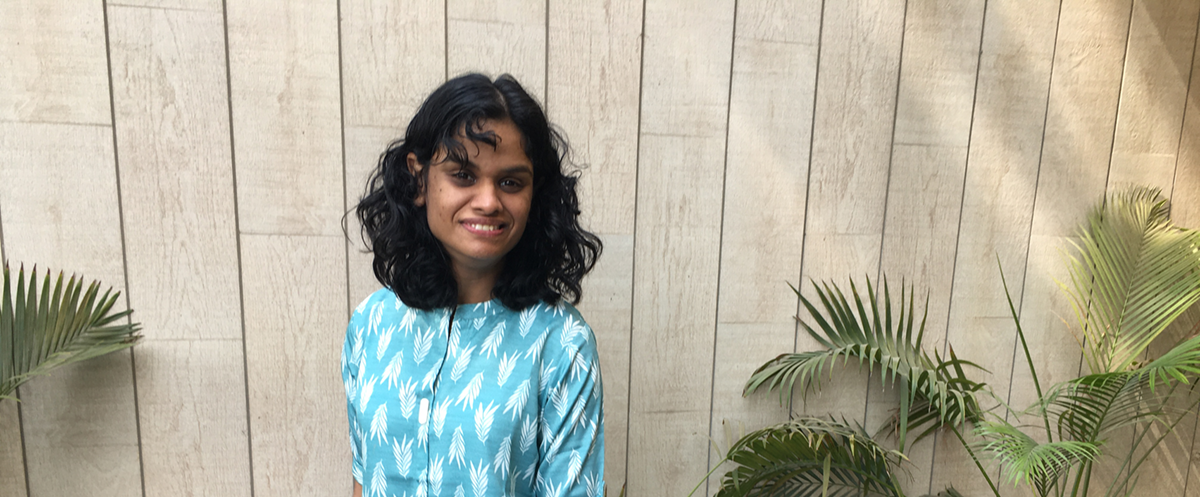Academic Background
I am an interdisciplinary freelance consultant and researcher with a background in geography and civil engineering. I completed a BA (Hons) in Human Geography and MRes in Geography at the University of Leicester. I became the first Indian woman with Cerebral Palsy to complete my PhD at the Water Engineering and Development Centre (WEDC) in the School of Architecture, Building and Civil Engineering at Loughborough University, UK. My thesis was on the WASH needs of women making the transition to menopause (perimenopause) in urban Ghana. I am co-lead for the leave no-one behind theme at the Rural Water Supply Network and a Fellow of the Royal Geographical Society.
WASH Practitioner, Consultant and Trainer
Inclusive WASH
I am a specialist in inclusive WASH and ensuring that the sector leaves no one behind. I am interested in how we can ensure equity and inclusion across the sanitation service chain, both for people who use sanitation services and have different infrastructural needs, and for the sanitation workers who deliver them but are too often marginalised. Since 2013, I have specialised in looking at how the WASH sector can address the diverse WASH needs of women going through the perimenopause. I champion the need for the WASH sector to pay greater attention to issues of menstrual health and hygiene for women reaching the end of menstruation at the perimenopausal stage.
I have co-authored key guidance on supporting people living with incontinence, and have conducted research into addressing the needs of older people with incontinence in humanitarian settings. Other work has focused on providing accessible WASH facilities for people with disabilities and exploring how existing guidance for practitioners on accessible WASH can be provided. I have explored how modern energy cooking services in low and middle-income countries can meet the needs of people with disabilities. I have also explored the impact of the COVID-19 pandemic on NGOs supporting people with disabilities and on the rights of girls around the world. In recent times, I have also begun to look at how we can consider equity and inclusion for sanitation workers in South Asia, considering aspects of gender and menstrual hygiene, disability and caste, and have published a blog and a collaborative journal paper with prominent scholars in the field.
Research
I am an interdisciplinary feminist researcher. I have explored hidden aspects of WASH from new perspectives, looking at areas of WASH which are often neglected. My research skills focus on understanding the views of people who are often left behind in WASH, including various service users such as women and people with disabilities, and service providers who work as waste collectors, sweepers and manual pit emptiers as sanitation workers, who are too often neglected in equity and inclusion debates. Intersectionality is a particular interest, where multiple aspects of identity (e.g. gender, caste, poverty, age, disability) come together to exclude service users as well as sanitation workers. Participative methods, such as semi-structured interviews, questionnaires, PhotoVoice (participatory photography), participatory mapping, video and ethnography have proved to be really useful throughout my work, together with qualitative data analysis, using software such as NVivo. I am also experienced in conducting remote data collection and have completed research on the experiences of older people living with incontinence and their caregivers in humanitarian settings in Africa using online techniques. Other research consultancy experience includes conducting literature reviews for academic institutions, gender and social inclusion evaluations for programming, surveys of organisations at an international level, and writing op-eds with organisations involved in grassroots community development in India. I have published seven academic journal papers to date and continue to collaborate with academic organisations including CEPT University in India for research and writing papers.
Capacity development and teaching
I offer two workshops on the WASH needs of perimenopausal women and how PhotoVoice can be used within the WASH sector. My training has reached sector professionals and postgraduate students in India, Australia, Peru, Switzerland, Germany, Ghana, South Africa, Nigeria and more. I have delivered capacity development workshops for inclusive WASH at international conferences, providing training for sector professionals on menstrual hygiene, the WASH needs of perimenopausal women, and the provision of inclusive facilities for people with disabilities. I give guest lectures to Masters students at the School of Civil Engineering, University of Leeds and at the Faculty of Planning, CEPT University.
